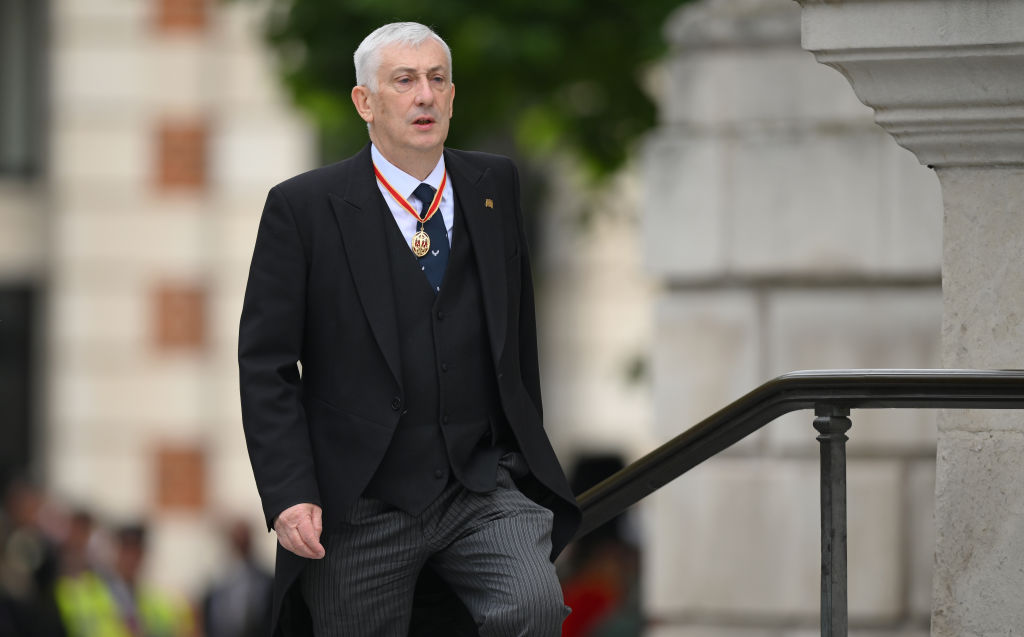Ahead of the SNP’s opposition day debate calling for an immediate ceasefire in Gaza, the expectation was that it could herald Keir Starmer’s biggest rebellion to date. Labour MPs – including some frontbenchers – warned that they would back the SNP motion unless Labour moved its position. Instead, the House of Commons Speaker Lindsay Hoyle’s decision to defy convention and allow a vote on a Labour amendment to the motion (on top of a government amendment) has led to chaotic scenes in the chamber that have been more dramatic than those during the Brexit wars.
Starmer had tried to quell the likely Labour rebellion by putting forward an amendment to the SNP motion calling for an ‘immediate humanitarian ceasefire’. This appeared to satisfy some in his party. But then the government tabled its own amendment – which according to House of Commons convention meant the Labour amendment would not be called. After lobbying from Labour MPs, Hoyle decided against the advice of the Commons clerk to break with convention and allow a vote on the Labour amendment. He has since said this was down to concerns about threats to MPs and he was trying to find a way to protect MPs across the house from threats on such a sensitive issue.
However, his intention did not match the result. Instead, his decision to change the rules for the party he was affiliated with prior to taking the Speaker role has led to infighting across parliament. After the government withdrew its amendment, with Leader of the House Penny Mordaunt criticising Hoyle, the Labour motion was put through without a vote. This then led to angry scenes in the Commons as SNP and Conservative MPs used points of order to question the process. While Hoyle has claimed he made the move on the grounds that it would help MPs facing threats in their constituencies, the Tory MP Paul Bristow, who was sacked by No. 10 for calling for a ceasefire, used his intervention to complain he had been left with no way to show his constituents where he sat on the issue after the SNP motion was not called.
While Hoyle made a very brief appearance this evening to apologise after MPs demanded his presence, it was his deputy Rosie Winterton who had to preside over the fractious section. The Labour MP was accused of speaking so quietly MPs did not know to object to the Labour motion and therefore cause a division. She also had to explain why, despite the Tory tactics to delay the vote until after the cut off time of 7 p.m. (by taking a vote on making the proceedings private), the Labour motion still was called.
His decision today has changed how he is perceived among many MPs
While some SNP and Tory MPs have called for Hoyle to consider his position after today’s debacle (including signing an early day motion), it’s not clear that the government is pushing for his exit. However, his reputation is dented after a bruising day. A large part of Hoyle’s pitch to succeed John Bercow was that he would be the anti-Bercow candidate – sticking to the rules rather than tearing them up when it suited. The early day motion calling for his exit already has 33 MPs backing it. While this is a small number on paper, it only took 22 MPs in 2009 to sign a similar motion which led to the resignation of the then speaker, Michael Martin, two days later.
It follows that his decision today has changed how he is perceived among many MPs. It also doesn’t help matters that Hoyle was a Labour MP until taking the role and Winterton is Labour. It would have been better for the optics to have one of the Tory deputy chairs tonight overseeing the debate. It makes it easier for the Tories and SNP to claim the change in rules was politically motivated.
As for Hoyle, he used his apology to suggest that he regretted how his decision had panned out. The problem is that he was warned against it by the House of Commons clerk Tom Goldsmith. It’s still unlikely Hoyle will be forced out of the role. But tonight he lost control of the Commons – and winning back the trust of MPs will not be easy.







Comments